Devonian Period
The Devonian period is a major division of the geologic timescale. It spans from approximately 419.2 million years ago to 358.9 million years ago. The Devonian period is often referred to as the "Age of Fishes" due to the diversification of fish species during this time. It is also known for the appearance of the first forests on land and the development of terrestrial vertebrates.
Key Events and Characteristics
1. Evolution of Fish: The Devonian saw a significant diversification of fish, including the emergence of jawed fish and the development of bony fish.
2. First Forests: Land plants continued to evolve, leading to the appearance of the first forests. This marked a crucial step in the colonization of land by plants.
3. Terrestrial Vertebrates: The Devonian witnessed the transition of vertebrates from water to land, with the emergence of tetrapods, which were the first vertebrates to walk on land.
4. Mass Extinction: The late Devonian was marked by a significant mass extinction event, which had a major impact on marine life, particularly the reef-building organisms.
Study Guide
Here are some key points to focus on when studying the Devonian period:
- Identify and describe the major evolutionary developments in fish during the Devonian period.
- Explain the significance of the emergence of the first forests on land.
- Discuss the transition of vertebrates from water to land, including the appearance of tetrapods.
- Analyze the factors that may have contributed to the mass extinction event at the end of the Devonian period.
Remember to review the timeline of the Devonian period and familiarize yourself with key fossil records and geological formations associated with this time.
Understanding the Devonian period is crucial for gaining insights into the early evolution of vertebrates, the colonization of land by plants, and the dynamics of ancient marine ecosystems.
[Devonian] Related Worksheets and Study Guides:
.◂Science Worksheets and Study Guides Sixth Grade. Birds and Mammals
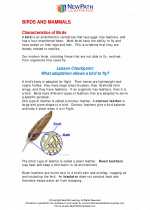
 Activity Lesson
Activity Lesson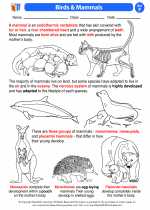
 Worksheet/Answer key
Worksheet/Answer key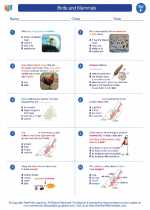
 Worksheet/Answer key
Worksheet/Answer key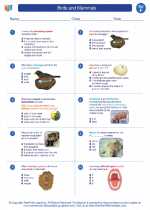
 Worksheet/Answer key
Worksheet/Answer key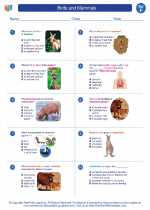
 Worksheet/Answer key
Worksheet/Answer key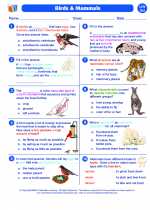
 Vocabulary/Answer key
Vocabulary/Answer key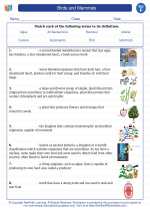
 Vocabulary/Answer key
Vocabulary/Answer key
 Vocabulary/Answer key
Vocabulary/Answer key
 Vocabulary/Answer key
Vocabulary/Answer key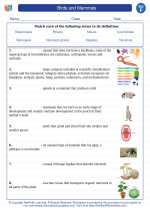
 Vocabulary/Answer key
Vocabulary/Answer key
